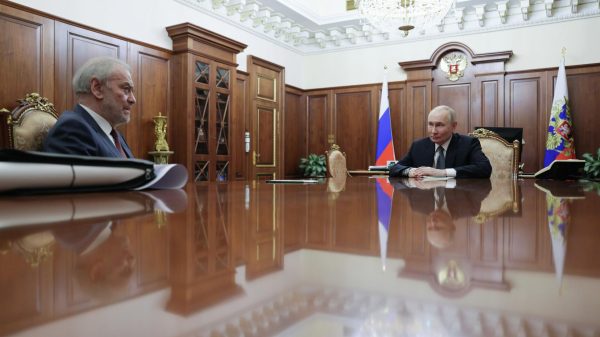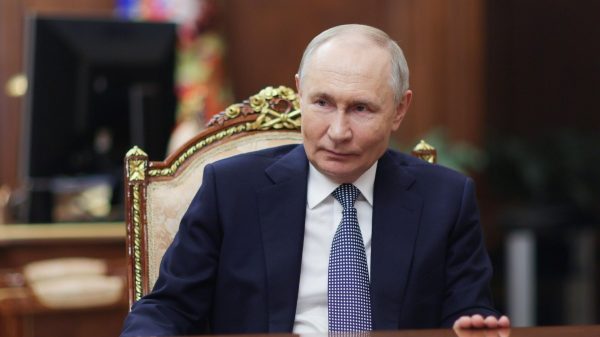Foreign currency debt, unlike ruble debt, is not subject to indexation for long delays in payment, the Supreme Court of the Russian Federation (SC) decided. The indexation mechanism, which makes it possible to compensate for losses from inflation, has been actively used by business since 2022, and there have been no problems with ruble debts. But disputes regarding the indexation of foreign currency debts have so far been resolved by courts in different ways. The Supreme Court recognized that the choice of the euro as the currency of debt and payment is already a way to compensate for the “inflationary processes occurring with the ruble,” and indexation in this case is not allowed. Lawyers saw a number of controversial points in the arguments of the Supreme Court.
The Supreme Court considered the issue of the rules for indexing an awarded debt denominated in foreign currency .
Indexation for long-term non-repayment of debt was ordered to be introduced by the Constitutional Court, which in July 2021 recognized that indexation protects “the property interests of the creditor and debtor from inflationary processes” and is “aimed at maintaining the purchasing power of the awarded amounts.” From 2022 Art. 183 of the Arbitration Procedural Code of the Russian Federation (APC) allows debt to be indexed taking into account the “monthly consumer price indices for goods and services in the Russian Federation” of Rosstat.
Indexation for revaluation
In March 2021, the courts recovered €431.1 thousand from Niimstroy LLC at the exchange rate of the Central Bank of the Russian Federation on the date of the actual payment. The defendant paid this amount to the claimant Igor Fomenko only in May 2022. Mr. Fomenko demanded indexation of the debt, taking into account the long non-execution of the court decision and the change in the euro exchange rate (from 89.34 rubles at the time of the decision to 69.43 rubles at the time of execution). He pointed out that only due to the revaluation of the ruble, the amount of debt depreciated from 38.5 million rubles. up to RUB 29.9 million The arbitration court indexed the amount to €80.4 thousand, the decision survived the appeal and cassation.
The debtor filed a complaint with the Supreme Court. In his opinion, if the obligation “was originally expressed and was subject to execution in foreign currency,” then this “eliminates the need to recalculate the amount of the defendant’s monetary obligation into rubles at the rate of the Central Bank of the Russian Federation.” Instead of the indexation mechanism, says the Niimstroy complaint, Art. 395 of the Civil Code of the Russian Federation on interest on late payments in the amount of the Central Bank key rate. The case was transferred to the Economic Collegium of the Supreme Court, which overturned the court decisions.
According to the Supreme Court, the indexation procedure is “calculated to determine inflation processes occurring specifically with the ruble in conditions of weakening its purchasing power” and is applied only in cases where “the awarded amount is expressed in rubles.”
Here, the currency of debt and the currency of payment was the euro, that is, the parties “exercised in advance their right to compensation for the inflationary processes occurring with the ruble,” the Supreme Court decided.
The Supreme Court regarded the choice of foreign currency as “an alternative way to compensate for the impact of ruble inflation” compared to the indexation mechanism, and “the parties assumed the risk of possible fluctuations in the ruble exchange rate in both directions.” The instruction “to collect debt in foreign currency at the exchange rate of the Central Bank of the Russian Federation on the date of payment in itself creates a fair mechanism for compensating for financial losses,” the Supreme Court panel concluded. The applicant was denied indexation.
Restrictive interpretation
Previously, courts usually indexed amounts awarded in foreign currency, says Vyacheslav Ushkalov, managing partner of Pleshakov, Ushkalov and Partners. The existence of the practice of indexing foreign currency debts is also confirmed by Artem Makarov, a lawyer in the dispute resolution practice of the Kosenkov and Suvorov law firm. At the same time, the courts’ approaches to calculations were different (see “Kommersant” on May 11).
Abroad, “debt indexation exists, at least, in common law countries (English law and similar legal systems),” says Dmitry Kletochkin, partner at the law firm Rustam Kurmaev and Partners. “A similar mechanism exists in Ireland, where the percentage of compensation for losses is 2%. In the UK, they allow interest to be calculated, but the period and interest rate are determined by the court,” says Mr. Makarov, clarifying that indexation of foreign currency debts is allowed there.
In Russia, the Supreme Court has now “formed a universal position that indexation compensates for inflation processes only in relation to the national currency,” says Forward Legal lawyer Oleg Sheikin.
He notes that the Supreme Court does not distinguish between “strong” and “weak” foreign currencies. Lawyers' opinions on the position of the Supreme Court were divided. Mr. Sheikin considers it fair: “The refusal to index the foreign currency debt does not violate the rights of the creditor, since the parties essentially agreed on the use of foreign currency, including in order to exclude the impact of ruble inflation on the obligation.” “If the parties decided to use a different currency for settlements, then they accepted the risks associated with this,” agrees Dmitry Kletochkin.
Vyacheslav Ushkalov, on the contrary, notes that “there are no restrictions in the law for indexing amounts in foreign currency, and the decision of the Supreme Court interprets the norm restrictively.” “The purpose of a currency clause is protection from currency fluctuations, and the purpose of indexation is protection from inflation; these are different things,” the lawyer emphasizes. His opinion is shared by Artem Makarov: “The only basis for indexation is the very fact of late payment of the amount of money, and the currency of the debt does not matter.”
Now “if the exchange rate is stable and inflation is progressing, debtors under ruble obligations receive an unreasonable advantage over foreign currency ones,” explains Mr. Ushkalov.
In his opinion, it would be more fair to index the ruble equivalent of the foreign currency debt at the time the court decision was made and compare it with the amount in rubles on the date of payment of the debt — if inflation has overtaken the exchange rate (the first amount is greater than the second), then indexation is needed.
< p class="doc__text">At the same time, lawyers doubt that the position of the Supreme Court will push businesses to a massive transition to ruble settlements with counterparties. “Currency risks are currently higher than the potential benefits from indexation,” points out Artem Makarov. Mr. Ushkalov also believes: “In a situation of fluctuations in the ruble exchange rate, peg to a stable foreign currency is a more reliable tool of protection than the consumer price index.”
Oleg Sheikin adds that the business determines the currency of the agreement “primarily guided by business factors.” “When it comes to a foreign trade contract, there is often no choice — the payment currency is dictated by the foreign supplier, who is unlikely to be interested in rubles,” adds Vyacheslav Ushkalov. And in the case when the exchange rate changes in favor of the debtor (revaluation of the ruble), now “the creditor is deprived of the right to compensation for losses,” summarizes Artem Makarov.




















































Свежие комментарии